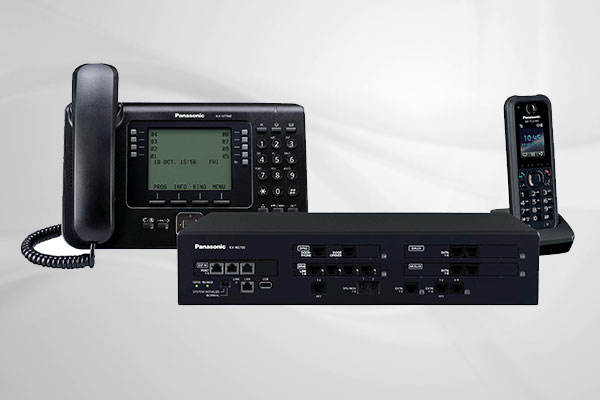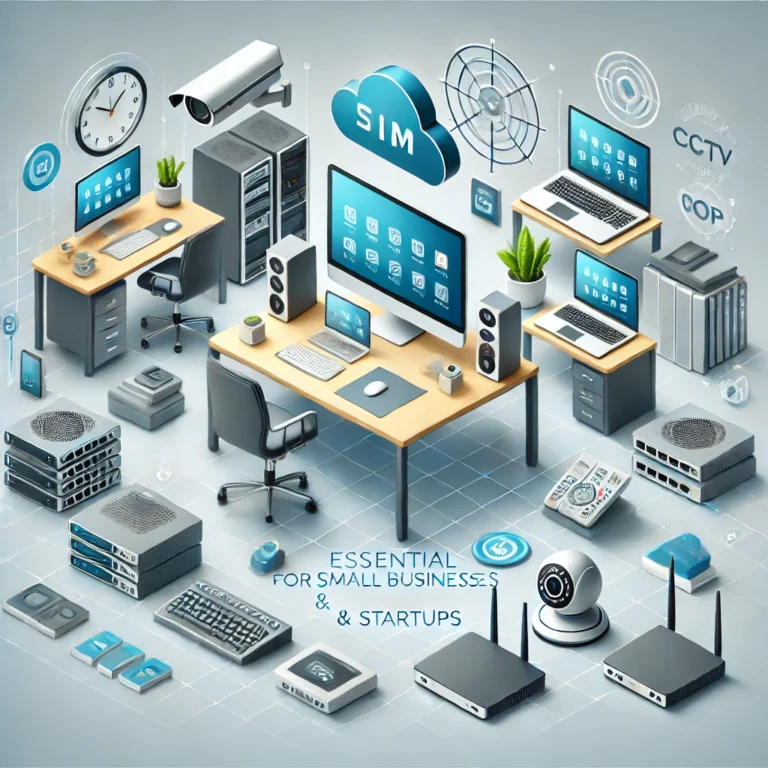The Critical Role of EPBAX Systems in Society and Industry
In today’s interconnected world, communication is the lifeblood of both societal interaction and industrial operations. As technology continues to evolve, the tools we use to manage communication have become more sophisticated, with EPBAX (Electronic Private Branch Exchange) systems standing out as a cornerstone of organizational communication. These systems play a pivotal role not just in industries but also in shaping the very fabric of modern society.
In this blog post, we’ll explore how EPBAX systems contribute to both societal development and industrial efficiency, enhancing the way we interact, collaborate, and grow.
What is an EPBAX System?
Before diving into its impact, let’s understand what an EPBAX system is. An EPBAX is a private telephone network used within an organization, providing internal communication channels and managing external calls to the outside world. It enables seamless connectivity across different departments or teams, offering features such as call routing, voicemail, conference calls, and more.
EPBAX systems have evolved over the years, transitioning from traditional analog setups to digital, IP-based systems that offer even greater functionality and flexibility. Today’s modern EPBAX systems can integrate with email, instant messaging, and even video conferencing platforms, creating a unified communication environment.
EPBAX Systems in Society Building
The role of EPBAX systems in society building extends far beyond the walls of businesses. As the backbone of communication, these systems help create a connected, informed, and productive society. Here’s how:
- Enhanced Connectivity in Communities
Communication is the foundation of any thriving community. EPBAX systems provide a reliable means of communication for community centers, educational institutions, hospitals, and government organizations. These systems ensure that important information is transmitted efficiently, whether it’s for emergency alerts, public announcements, or day-to-day operations. In an emergency, EPBAX systems help first responders quickly connect with one another, potentially saving lives. - Efficient Social Services
Government agencies and non-profit organizations rely on EPBAX systems to handle a high volume of calls, from citizens requesting assistance to managing the delivery of essential services. Whether it’s a social welfare office coordinating aid or a healthcare system managing patient calls, EPBAX systems are critical to providing organized and timely services to society. - Fostering Collaboration in Education and Research
Universities, research institutes, and educational institutions use EPBAX systems to maintain seamless communication between faculty, staff, and students. By facilitating internal collaboration and connecting various departments, EPBAX systems help improve the overall educational experience and foster innovation in research.
EPBAX Systems in Industries
The industrial sector is another area where EPBAX systems have a transformative impact. In the fast-paced, competitive world of business, an efficient communication system can make the difference between success and failure. Here’s how EPBAX systems drive industry growth:
- Streamlining Internal Communication
Effective communication within a company is crucial for productivity. EPBAX systems enable employees to communicate effortlessly with one another, regardless of location or department. Whether it’s a quick query or a detailed project discussion, EPBAX ensures that communication is both efficient and clear, fostering better collaboration and decision-making. - Customer Relationship Management
A company’s ability to manage customer inquiries, complaints, and requests directly impacts its reputation. EPBAX systems play a vital role in customer service by ensuring that calls are routed to the right departments or agents. Advanced EPBAX systems can also record customer interactions for future reference, helping businesses improve their services and better understand customer needs. - Reducing Operational Costs
EPBAX systems, especially those with VoIP (Voice over Internet Protocol) technology, help businesses reduce the cost of long-distance communication. With a modern IP-based system, companies can integrate voice, data, and video communication over a single network, significantly cutting down on telecom expenses and improving overall operational efficiency. - Scalability for Growing Businesses
As businesses expand, so does the need for a scalable communication solution. EPBAX systems offer businesses the flexibility to grow by adding more phone lines, integrating with CRM software, and enhancing collaboration tools, all without the need for a complete overhaul. This adaptability allows businesses to remain agile in a competitive market. - Improved Decision-Making with Analytics
Modern EPBAX systems often come with built-in analytics tools that allow businesses to track call volumes, durations, and response times. This data can be used to optimize workflows, improve customer service, and make informed decisions about staffing and resource allocation.
The Future of EPBAX Systems
As we look ahead, EPBAX systems will continue to evolve, incorporating new technologies like artificial intelligence, cloud computing, and machine learning. These advancements will further enhance their capabilities, enabling more advanced features like automated call handling, AI-powered customer support, and integration with a wider range of business tools.
Additionally, the transition to cloud-based EPBAX solutions will continue to gain momentum, providing businesses with even greater flexibility, scalability, and cost savings.
Conclusion
In conclusion, EPBAX systems are indispensable not just for the smooth functioning of industries but also for the betterment of society. By facilitating efficient communication, these systems play a critical role in community engagement, enhancing productivity, and improving customer satisfaction. As both society and industries continue to advance, EPBAX systems will remain a key enabler of progress and collaboration.
Businesses and public services that invest in these systems are investing in a more connected, efficient, and productive future.


